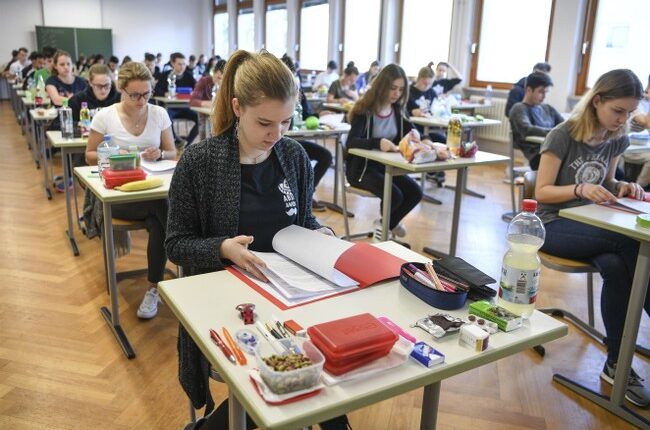
An investigation by the Guardian found that UK college students have been caught cheating using AI at much higher rates than in the past. There are thousands of known cases and it’s possible these are just the tip of the iceberg.
A survey of academic integrity violations found almost 7,000 proven cases of cheating using AI tools in 2023-24, equivalent to 5.1 for every 1,000 students. That was up from 1.6 cases per 1,000 in 2022-23.
Figures up to May suggest that number will increase again this year to about 7.5 proven cases per 1,000 students – but recorded cases represent only the tip of the iceberg, according to experts…
Many more cases of AI cheating may be going undetected. A survey by the Higher Education Policy Institute in February found 88% of students used AI for assessments. Last year, researchers at the University of Reading tested their own assessment systems and were able to submit AI-generated work without being detected 94% of the time.
A UK university professor of psychology told the Guardian it was very likely most people cheating simply weren’t being caught.
“I would imagine those caught represent the tip of the iceberg. AI detection is very unlike plagiarism, where you can confirm the copied text. As a result, in a situation where you suspect the use of AI, it is near impossible to prove, regardless of the percentage AI that your AI detector says (if you use one). This is coupled with not wanting to falsely accuse students.
It’s true that some AI generated text can be detected but it’s also true that there are lots of videos on YouTube (and probably on TikTok) telling people how to avoid being caught. The word that pops up in these videos is “humanize.” You can give ChatGPT specific instructions on making its output sound less like a machine and more like and undergrad and it will produce content that passes most detectors. I found this example video in about 10 seconds.
I’m not picking on this particular person. There would be no point as there are dozens more videos just like this promising the best way to humanize your AI output so it can’t be detected. All of that to say, the official count of people caught may be 7.5 per 1,000 but I bet the actual figure is at least ten times that and maybe even higher than that.
And this isn’t limited to college. I know a teacher who has seen this pop up pretty often in high school. As with college cheaters, it’s primarily the kids who do the absolute minimum who get caught, i.e. generating something from ChatGPT and printing that out to submit. Those kids get caught caught because the cheating is so blatant and so obvious. But with just a few extra steps it’s possible to hide the source in a way that makes it much more difficult for teachers to detect. As mentioned above, no teacher wants to falsely accuse a student so the ones who get caught are really just the obvious cases.
So what can teachers do about this? One option is to stop having students submit assignments done at home and have them do writing and take tests in class. Some readers may still remember taking tests in blue books. Thanks to Chat GPT, blue books are making a comeback.
Students outsourcing their assignments to AI and cheating their way through college has become so rampant, so quickly, that it has created a market for a product that helps professors ChatGPT-proof school. As it turns out, that product already exists. In fact, you’ve probably used it. You might even dread it.
It’s called a blue book.
The mere thought of that exam booklet with a blue cover and blank pages is enough to make generations of college kids clam up—and make their hands cramp up…
Sales of blue books this school year were up more than 30% at Texas A&M University and nearly 50% at the University of Florida. The improbable growth was even more impressive at the University of California, Berkeley. Over the past two academic years, blue-book sales at the Cal Student Store were up 80%…
Last year, [Tulane professor Stan] Oklobdzija allowed his class to use laptops for exams so they could type responses and he wouldn’t have to decipher handwriting that looked more like hieroglyphics. He asked them to obey the school’s honor code and made them promise they wouldn’t use ChatGPT. Then one of his teaching assistants took a picture of a student using ChatGPT.
“So,” he said, “blue books it is.”
This is not only fair to the students who are cheating, it’s also more fair for the students who aren’t. My son is a high school student and he’s seen other students in his classes who spend 10 minutes typing a prompt into ChatGPT for an assignment that he knows will take him 3-4 hours to complete. The students who cheated got A’s with no effort while the students who really did the work weren’t guaranteed to get those grades. Also, they had a lot less time to work on other assignments for other classes than the students who were cheating. So long as students can cheat without consequences good students are being put at an unfair disadvantage.
The catch, of course, is that blue books take a lot more effort to grade on the part of the teacher because they aren’t going to be as easy to read as typed assignments. That’s probably why many teachers won’t want to return to the old ways even though they really should at this point.









